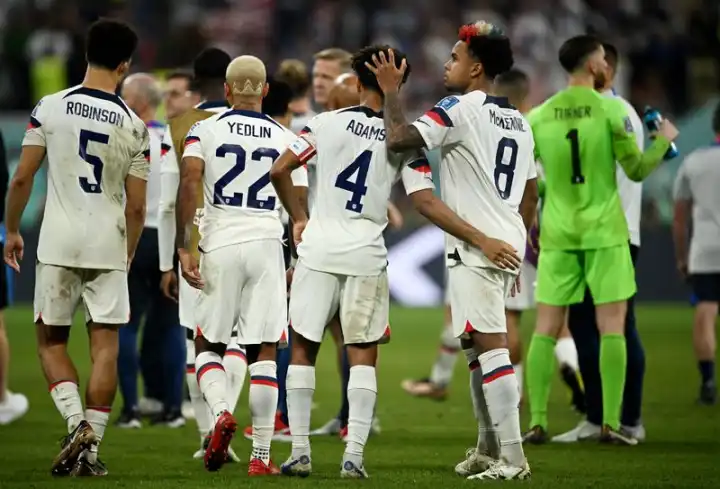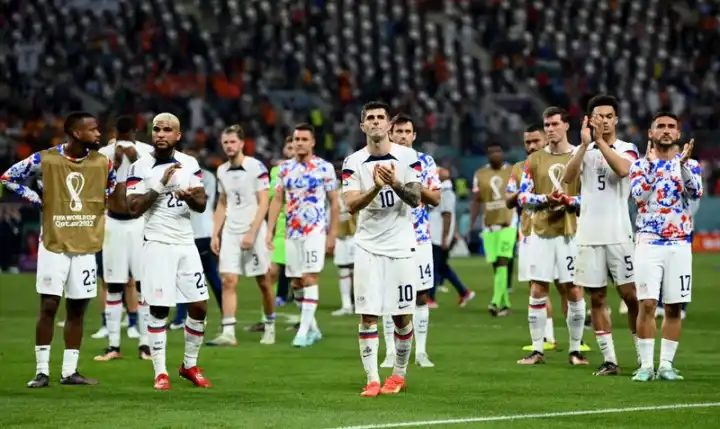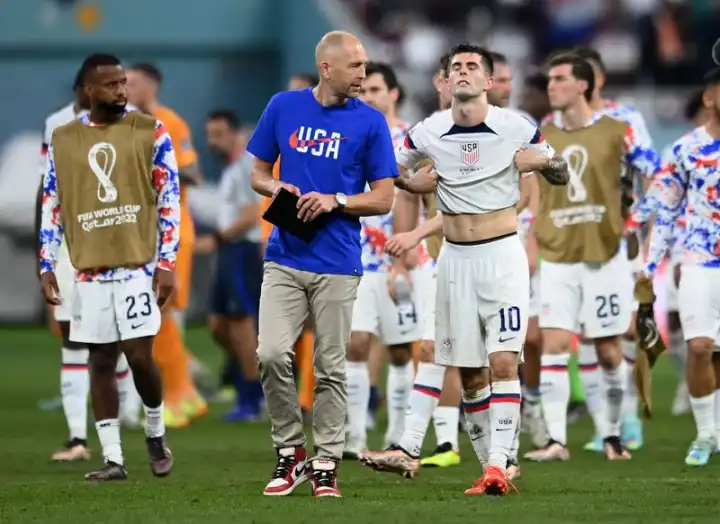With 2026 on the horizon future looks bright for young Americans





By Steve Keating
AL RAYYAN, Qatar (Reuters) - The United States exited the World Cup with a Round of 16 loss to the Netherlands on Saturday but looking towards the 2026 horizon, a bright future is rising for the young Americans.
Having failed to qualify for the 2018 World Cup, U.S. coach Gregg Berhalter opted for youth this time, fielding a lineup with an average age of 25 - the second youngest of the 32 nations assembled in Qatar after Ghana.
With defender DeAndre Yedlin, who played in Brazil in 2014, the only link to the country's World Cup past, the Americans' lack of experience was glaring at moments but offset by exuberance and a breathless work rate.
While a 3-1 humbling at the hands of the Dutch was not the way the United States wanted to exit, the big picture assessment is "mission accomplished" as Berhalter's young squad received a World Cup baptism that is sure to pay dividends in 2026.
"We set out with a goal to show the rest of the world how we play soccer and I think we partially achieved that even though we fell short of our goals," Berhalter said. "I think this group is close.
"To be fielding the youngest lineup in the World Cup four games in a row and still be able to play the way we are the American public should be optimistic."
When the next World Cup rolls around on home turf players like 19-year-old Yunus Musah, 22-year-olds Timothy Weah and Sergino Dest, 23-year-old Tyler Adams - the youngest captain at this year's tournament - will all be approaching their prime.
The United States may have also have uncovered the marquee name American fans can attach themselves to over the next four years in Chelsea's 24-year-old attacking mid-fielder Christian Pulisic, who established his star credentials in Qatar.
A gritty, politically charged win over Iran and draws against England and Wales carried the United States into the last 16 but more will be expected on home soil.
Those results sparked talk of the arrival of the next U.S. "golden generation" but Berhalter was reluctant to place that mantle on his team, saying they had yet to earn it.
"I think that is TBD (to be determined)," Berhalter said before his squad had secured their last 16 spot. "We haven't achieved anything as a group on the world stage.
"When you're talking about England coming in second (2021 European Championships) there's tangible things there, you can say this group achieved something.
"We're just not there yet, we have to use this World Cup to establish ourselves.
"I think we are getting a little ahead of ourselves trying to call the team that (Golden Generation) and it is still to be determined."
The loss to the Netherlands underscored the hard work ahead if the Americans plan to venture beyond the Round of 16 in 2026.
But they head home believing they have a jump on their co-hosts Mexico and Canada, who both were dumped out in the group stage.
Mexico finished third in a very tough group that included Argentina and Poland on four points.
Canada, back in the World Cup for the first time in 36 years, could do no better than they did in 1986 losing all three games but did manage to score a first ever goal.
The bulk of games in 2026 will be played in the United States and the American performance in Qatar offered promise that they will be meaningful contests beyond the last 16.
"I do feel like we made progress," said Berhalter. "I feel like when you look at our team it is a very clear identity of what we are trying to do.
"The guys should gain confidence that we can play with anyone in the world the way we want to play that's the important think, now it's about how do we keep that up and take it to another level."
(Reporting by Steve Keating in Al Rayyan, Editing by Angus MacSwan)